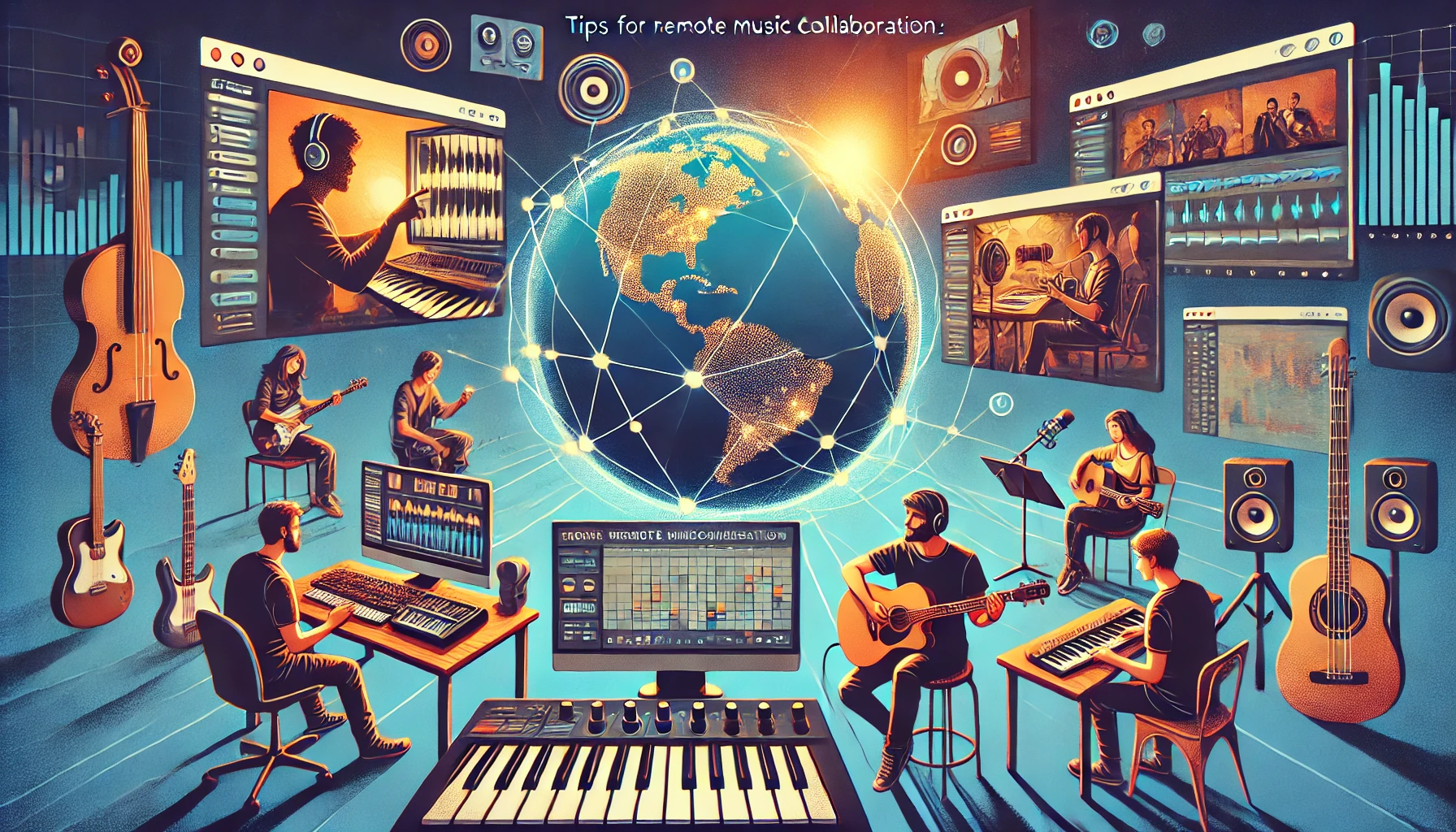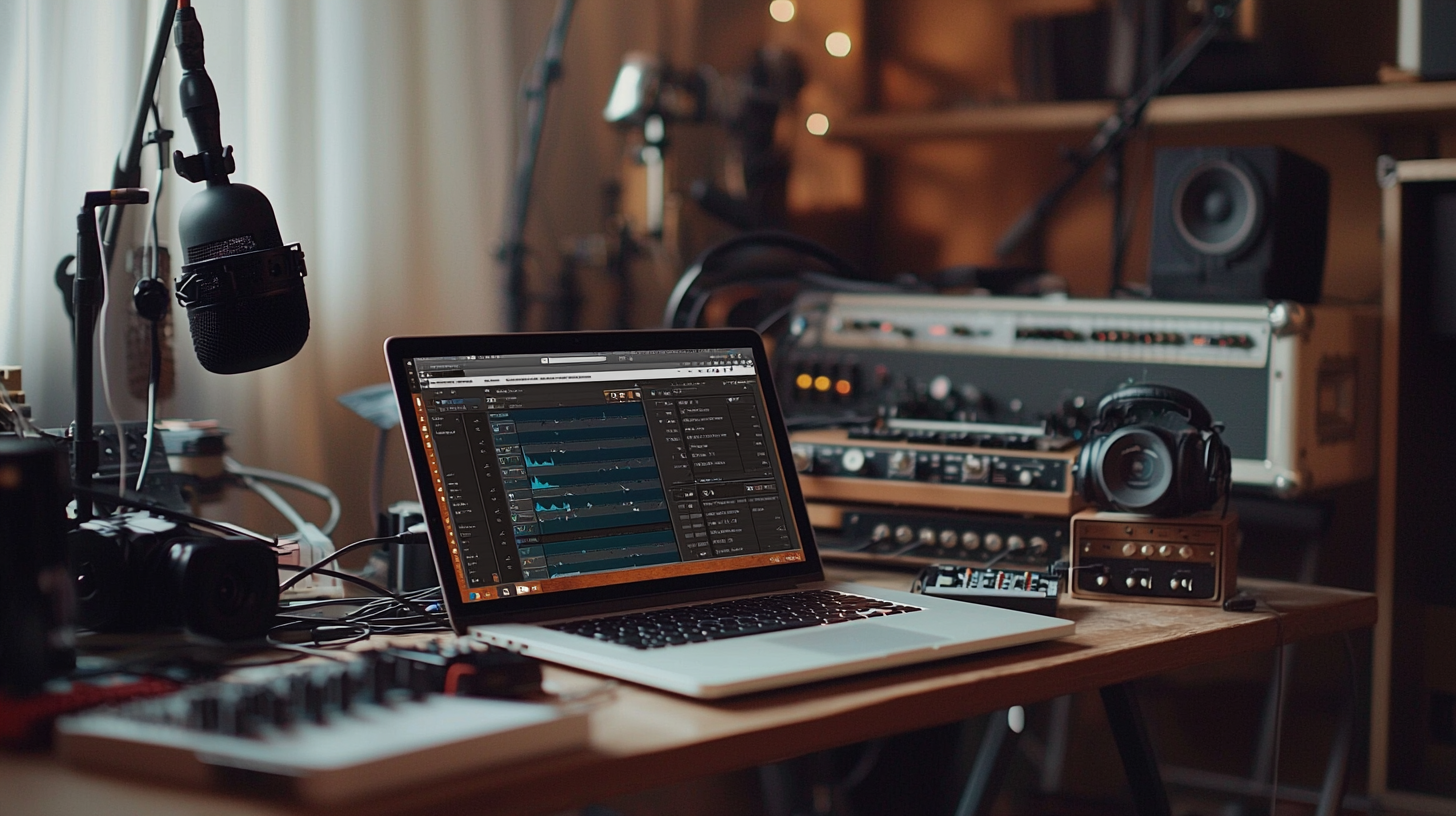Tips for Remote Music Collaboration: How to Find Musicians, Network, and Maximize Opportunities
With the rise of technology and the increasing accessibility of powerful music production tools, remote music collaboration has become an essential part of the creative process for musicians worldwide. Artists no longer need to be in the same room to create music together. In fact, remote collaboration has opened the door to an international pool of talent, allowing you to connect with musicians across different time zones, genres, and skill levels.
In this blog post, we will explore essential tips for successful remote music collaboration, from finding musicians and networking online to leveraging these connections for more opportunities.
- Choose the Right Platform for Collaboration
One of the first steps to successful remote collaboration is selecting the right platform. There are several online music collaboration websites that cater to different needs:
- Muibas.com: A feature-rich platform designed specifically for online music collaboration. On Muibas, you can find musicians by filtering through projects or talent based on specific genres and skills. You can also create virtual bands, jump into existing projects, or invite others to collaborate on your music. The platform provides tools for seamless communication and real-time collaboration, making it a go-to option for remote projects.
- Splice: Known for its sample library and project sharing capabilities, Splice allows producers to share DAW project files and collaborate on music directly. It’s ideal for beatmakers and producers.
- SoundBetter: This platform is more of a marketplace where you can hire professional musicians, vocalists, and producers for your project. It’s perfect if you want high-quality contributions from seasoned artists.
- Set Clear Goals and Expectations
Remote collaborations can sometimes get chaotic without a clear direction. When starting a project, it’s crucial to set clear goals from the start. Communicate your vision, deadlines, and expectations with your collaborators to avoid misunderstandings later on.
Best Practices:
- Create a shared document outlining the project timeline, milestones, and each collaborator’s responsibilities.
- Use platforms like Google Drive or Dropbox to keep all project-related files and documents organized.
- In Muibas, the real-time chat feature allows for seamless communication and idea-sharing, keeping everyone aligned on the project goals.
- Embrace Effective Communication Tools
Clear and consistent communication is the backbone of any remote collaboration. Ensure that you’re using the right communication tools to avoid miscommunication and delays.
- Muibas’ real-time chat feature: This allows collaborators to communicate easily within the platform, making it convenient to discuss ideas, share feedback, and revise tracks.
- Slack or Discord: These platforms are great for group chats and organizing discussions across different topics.
- Zoom or Google Meet: For more in-depth discussions, video calls are a fantastic way to talk through ideas in real-time and bond with your collaborators.
- Share Files Efficiently and Use Version Control
When working remotely, managing multiple versions of your track can get complicated. Make sure you’re using tools that allow for efficient file sharing and version control to avoid overwriting important changes.
- Google Drive, WeTransfer, or Dropbox: These cloud storage platforms allow you to easily share large audio files and projects with collaborators.
- Version control on Muibas: Muibas has built-in features for managing revisions, allowing you to submit different versions of your track, and revert to earlier drafts if needed. This ensures that everyone is working on the most updated version of the project without confusion.
- Find Musicians through Online Networks
One of the major challenges in remote collaboration is finding the right people to work with. Luckily, there are several ways to discover talented musicians online:
- Muibas: Use Muibas’ advanced search filters to find musicians by genre, skill level, and project requirements. You can jump into someone else’s project or invite others to join yours by opening instrument slots.
- Social Media: Platforms like Instagram, TikTok, and Twitter are great for discovering emerging musicians. You can search through hashtags like #musiciansofinstagram or #musiccollab to find people sharing their work.
- Networking Communities: Join communities like Reddit’s WeAreTheMusicMakers or Facebook groups dedicated to musicians. These platforms provide opportunities to network with like-minded artists and exchange collaboration offers.
- Build a Strong Online Presence for Networking
Your online presence is your resume in the world of remote collaboration. Having a polished and professional profile helps you attract the right collaborators and opens up opportunities for bigger projects.
Tips for Building Your Profile:
- Create an artist portfolio: Share samples of your work on platforms like SoundCloud, YouTube, or Bandcamp.
- Update your profile on collaboration platforms: Make sure your Muibas or SoundBetter profile is filled with your latest work, detailed information on your skills, and your availability for new projects.
- Engage with other artists: Like and comment on other musicians’ posts to build relationships. This will increase your visibility and help you connect with potential collaborators.
- Make the Most of Virtual Networking Opportunities
Remote collaboration doesn’t just stop with individual projects. Virtual networking events and online communities offer excellent opportunities to meet new people, expand your network, and discover new creative projects.
Where to Find Networking Opportunities:
- Virtual Music Conferences: Many music conferences, such as NAMM or SXSW, now have virtual components. Attend these to meet industry professionals, network with musicians, and find collaboration opportunities.
- Webinars and Online Workshops: Platforms like Eventbrite and Meetup often host webinars or workshops for musicians on topics like production, songwriting, and marketing.
- Collaborative Forums and Groups: Online forums like Gearslutz and groups on Reddit or Facebook are great for discussing projects, sharing advice, and finding collaborators.
- Keep Pushing for Opportunities and Stay Consistent
Remote collaboration is just one piece of the puzzle. To maximize your chances of landing music opportunities, you need to remain active, keep reaching out to new collaborators, and stay consistent with your work. Here are some additional ways to make sure you’re always moving forward:
- Pitch Your Work: Don’t hesitate to send your completed tracks to labels, curators, or blogs. Being proactive about sharing your work opens doors for more opportunities.
- Collaborate Often: The more collaborations you do, the more experience and exposure you gain. Plus, it allows you to build long-term relationships with musicians who may recommend you for future opportunities.
- Consistency is Key: Keep creating, collaborating, and sharing your work. As you build up a body of collaborative projects, you’ll establish yourself as a reliable and creative artist.
Conclusion: Leverage the Power of Remote Collaboration
Remote music collaboration offers musicians the opportunity to work with talents from across the world, resulting in a more diverse, creative, and productive music-making process. Platforms like Muibas.com provide the tools needed to connect, collaborate, and create seamlessly, while other tools help facilitate communication, file sharing, and project management.
By following these tips—choosing the right platform, setting clear goals, building your network, and staying consistent—you’ll be able to take full advantage of the opportunities that remote collaboration offers.
Are you ready to dive into remote music collaboration? Start building your next project on Muibas.com today and join a global community of talented musicians


